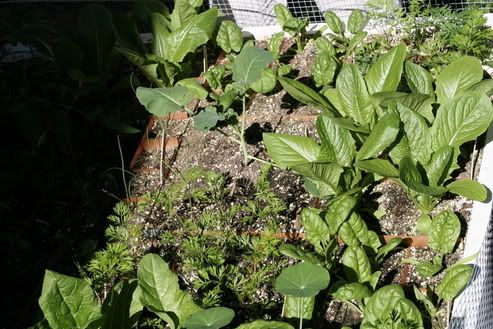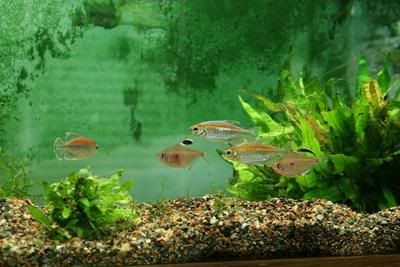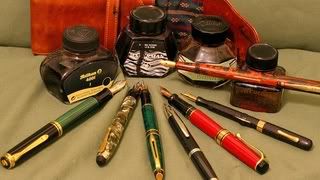
Above you see our Square Foot Garden as it appeared at the beginning of May. We've already eaten salads created from this garden, harvested the spinach, Swiss Chard, Romaine lettuce, and Basil leaves several times. Now at the end of May the tomato vines are pushing up against the top of the cage and stands about 5 feet high with thick stems. We’re still waiting on the onions, carrots, broccoli, peppers, and tomatoes. The broccoli plant is exploding and threatening to shade up the entire garden. We are giving about 6 cups per 12" square per 5 days of water (water saved from changing the water from our 75gallon aquarium). It's almost too much produce for us. Because this is a raised garden with rocks/gravel separating it from the ground (and pests), with soil mixed from scratch by us, we are seeing absolutely no weeds, no pests thus far. The enclosing wire cage is keeping all the birds, squirrels, rabbits, etc. away.

The initial labor was steep, the upkeep is becoming almost boring. That's the thing about hobbies, if it gets too easy and there is no scrambling about trying to figure things out, the hobby loses its appeal. Since I mentioned our aquarium, fish-keeping is another hobby of mine which has lapsed into something vaguely uninteresting. My first fish tank was a gold-fish bowl in which a series of common goldfish died - this was in 1971-1972. Over the past decade, for about 6 years I was literally obsessed with fish-keeping and all things aquatic. I have a couple of 6-foot high bookshelves filled with aquariology books I've read along with several years worth of fish-keeping magazines. I own nearly a thousand dollars-worth of water-testing equipment - now sitting dusty and out-of-date. My basement as you can see in my house-tour, is filled with hundreds of pieces of PVC piping, home-made aquarium stands, old fish-breeding equipment, filters, and various fish-tanks - all remnants of a mad obsession over a fish-keeping hobby. After a while, I began to lose interest in the whole fish-keeping enterprise -

I felt like I could routinely keep, breed, manipulate genetically etc. a couple of the challenging breeds of fish. But the time it took away from my kids and the other aspects of my life made it not worthwhile. I believe when my children are grown and I become bored with life, I can take it up again.

An Die Musik
Ever since I was about 10 years old, I’ve been a classical music aficionado. In fact my mother can’t stop telling everyone of how I used to be able to hum several dozen complete songs before I was two years old (and before I could talk). My maternal grandfather was a musical performer in his younger days playing piano, guitar, violin, viola, and the accordian in jazz clubs before he became an entrepreneur. My mother was a classical violinist and for a few years had a her own radio show where she participated in a moderated discussion about some aspect of music, then played a series of Mozart violin sonatas. She led me to my interest in classical music, initially of the popular classical pieces: Tchaikovsky’s Symphony No.6, Brahms’ Symphony No.4, Mozart’s piano concerto No.21 etc. Eventually I went deeply into the most abstract pieces by Bach, pretty much memorizing every detail of his English Suites, Well-tempered Clavier Book2, his Toccatas, etc. I spent most of my high-school years listening to Bach, Scarlatti, Brahms, Schumann, Scriabin, Mahler, Bartok. I learned to master a stupid musical instrument, the clarinet – my mother allowed me to play it instead of the viola which I asked to play because she did not want me to become a musician as she clearly and repeatedly stated (--musicians starve--). I went to NC all-state bands and Governor’s school with this stupid instrument. I won trophies and awards, and I played in musicals on local tv and with town orchestras and town bands with this stupid instrument. During College I played two years with the Penn wind ensemble, but as my clarinet began to decay and became unplayable, I couldn’t justify buying another one as my interest in it began to wane with the instrument. I increasingly longed pathetically to have been a string player, or even a pianist. I became focused on listening to most of Schubert’s songs, I drifted away from performance and became only a spectator of great music performance. This was all rapturous stuff and I couldn’t understand how people could live lives devoid of such nectar of the Gods. When I was in Philadelphia during college, instead of studying my heavy Pre-Med coursework, I used to visit the Curtis Institute of Music to hear the free concerts which were given 3-4 times a week by the pre-adolescent prodigies on display there. I used to go to the Academy of Music to hear the Philadelphia Orchestra and the bevy of international superstars perform there at least once a week. I believed it was better to score “B’s” on my physics and chemistry tests and partake of this music than to make “A’s” and forego the experience. In fact, one of the top reasons I chose to go to Penn was precisely for this reason (I don't otherwise have a great explanation for why I chose to go to Penn). I went to music festivals to hear Boston Symphony at Tanglewood Massachusetts, to hear young (and old) superstars at Marlboro Vermont, and of course at Philadelphia’s Mann Center in the Summer. My college grades continued to suffer as a result. I increasingly came to feel like a “groupie” as I hung around with my mother’s old musician friends (who were members of Boston Symphony strings and Philadelphia Orchestra strings). My cousin was a graduate and a cello performance instructor at the Vienna Conservatory – I stayed with her and her husband and I drank in the atmosphere of the city of Schubert, Brahms, and Mahler. I finally drifted away from the entire musical world when I moved down to Chapel Hill for Med school (the “sticks” in term of the musical world).

Astronomy
Here's another hobby in which I was briefly obsessed, one I've been interested in since I was 12 years old. I owned a 10x50 Bushnell binoculars and a dimestore 4" telescope which didn't work well when I was a child. I never understood much about astronomy, sky-watching until the past couple of years when I re-discovered my interest. I read about a dozen or so well-known astronomy hobby beginners' books such as NightWatch and Backyard Astronomer's Guide and Turn Left at Orion and half a dozen me-too type hobby books such as Practical Skywatching (the best of them I think). After a solid year in which I tried to learn most of the common constellations by sight and time of year, I ended up purchasing a used Meade 8" Schmidt-Cassegrain scope for $750 along with maybe $500 worth of eyepieces from Orion. I borrowed most of the books I read from the library in keeping with Tightwadding, but I did end up purchasing Turn Left at Orion, Burnham's Celestial Handbook volumes and 2 current skyatlases (the Norton and the Cambridge). With my new equipment I've seen Jupiter and its Galilean moons, Saturn and Titan, the Great Orion nebulae, various deep space object (smudges), and galaxies, and I believe this has been worthwhile and will continue to watch the skies for the rest of my life. Astronomy is one of those hobbies which is not only extremely expensive if you want it to be, but can be thrifty if you choose that path - the technology (and the potential spending on it) is limitless, but the information, knowledge that can be gained is also boundless - a very worthy life-long hobby I think. When you realize that one of these days, a massive comet or asteroid is probably going to smash the Earth into oblivion, it's even more important to keep looking out into the skies.

And now the most shameful hobby which I have unfortunately indulged:
fountain pen collecting (no laughing please).
I don't know why I've been fascinated with fountain pens since I was about 9 years old. I think it might have come from watching old 1920s silent movies by Harold Lloyd, Buster Keaton, and King Vidor. When I was in 4th grade I used to write in a diary with a leaky Sheaffer cartridge fountain pen which I purchased from a Kroger grocery store. I had a room-mate in college who used a fountain pen as an affectation - I simultaneously despised and envied it. After many years, my appetite for fountain pens was finally fully re-awakened in 1997 when I saw a mail-order catalog (I believe it was Levenger’s) which sold fancy Montblanc fountain pens. I decided to order a $350 fountain pen from a store in Michigan – a burgundy-colored Aurora Optima made in Italy - a very smooth writer. I scoured some flea markets around Raleigh, Charlotte, even in Charleston SC for old pens – I found it extremely difficult to find any good fountain pens this way – flea market vendors always over-estimated the value of their junky fountain pens. This immediately got me onto a train of purchases of increasingly expensive pens culminating in the purchase of a $400 Pelikan Souveran M1000, a $400 Omas 360 and a $500 Krone special edition button-filler pen. Along the way I picked up several antique pens also. My excuse was I would use these pens to write up my tedious history&physicals and orders for my hospital admissions at work. I did in fact use it some for this, but this stopped when one of my expensive pens (a Parker Duofold Centennial fountain pen) was stolen by one of my patients – this caused me to lose all trust and hope in mankind. I was able to wean myself off this horribly decadent hobby over the past several years but I had a final little frenzy this past year when I got my Pelikan M1000 Souveran’s tip ground into a stub and got my 90 year-old Conklin crescent-filler restored to perfection by Richard Binder. I sold the Krone and Omas fountain pens on ebay at a loss to rid myself of some guilt, but while researching this, I ended up purchasing another antique restored pen, a brown marbled rubber circa-1920s Mabie-Todd Swan lever-filler from a physics professor in Missouri. Once you write with a smooth flexi-nib old-fashioned fountain-pen, you can never ever again be happy with writing with ball-point and roller-ball pens. I do a lot of writing in my line of work, and sometimes the prospects of writing with a fountain pen can imbue my work with some degree of pleasure.
Over the past few months, I’ve been stricken with another deadly expensive hobby-fixation:
digital photography.
In fact I’ve been flirting with this hobby for the past couple of decades, but never committed to it because I didn’t like the mess of dark-room photo development. I did in fact do some dark-room work in a lab in medical school, and I didn’t enjoy it at all. I took many pictures with point-and-shoot Nikons since I was in high school, finally got a Nikon 35mm slr around 1996 (a $400 N60 kit). In late 1999 I bought my first digital camera, a very expensive Olympus C-2500L (cost $1500 at the time). Ignore that review, in real life, this camera absolutely sucked. After many slow subpar pictures, it finally conked out for no apparent reason in 2002. I bought a Canon G2 which is a fantastic point-and-shoot camera which can also do some manual work. It is very slow to cycle however and can’t give you pop-out crystal-clear pictures as many examples in my blog shows. Just before going on a week-long trip to Washington DC, after some encouragement from a friend with a Nikon D70, and after much reading and reviewing online, I finally gave in and bought a
Canon 20D. This camera is a quantum-leap in technology and ability from the G2 and I believe can take a picture the equal of if not superior to 35mm film SLRs. This camera can unfortunately hook up with a long line of frighteningly expensive lenses such as the Canon 70-200 f/2.8 IS which currently sells for $1700 from cut-rate online NYC vendors. The lenses I chose after experimenting with the $600 Canon 17-85mm IS, is the Tamron 28-75mm f/2.8, the Canon 85mm f/1.8, and the Canon 50mm f/1.8. All three of these lenses are spectacular. I also had to purchase the Sigma EF-500 DG Super E-TTL external flash and a couple of expensive B+W multi-coated protective filters. I sold back the 17-85mm lens on ebay and my total digital slr expenditures over the past 2 months have been $2792. This is not thrifty at all. And furthermore, I find that with the copious memory and computing power required by this beast of a camera, I am now looking at upgrading my 7 year-old computer and monitor. This is not good at all for a tight-wad lifestyle – Amy Dacyczyn would not approve believe me. Yet, take a look at the high quality images – here’s an example of one I took in a dark hole:

How can you say no to that? I’m in the midst of a frenzy of reading again. I’ve read mostly very bad photography books such as Lee Frost’s Teach Yourself Photography, John Freeman's Practical Photography and John Hedgecoe’s The Complete Guide to Photography. I’m about to read a couple of National Geographic photography series books which I’ve heard are good. I think there might not be any really great photography books just as there are no great books about “how to paint” or “how to write a book.” Most of the information is redundant and about things I already know about: apertures, shutter speeds, exposures, composition, photographic equipment and technology etc. Anyway this is my current obsession and hopefully this will lead to me being able to post better pictures.
When I was crazed about aquatica, I went to my local fish club meetings and went to several auctions in North Carolina and even up to the DC area. What I saw was a sad collection of lonely older unmarried people, childless couples, lots of middle-aged poorly socialized types, a few young people (the type their peers would classify as “nerds”), and a few dynamic con artists out to make money off these people. In general the demographics of the “fish-keeping crowd” is pretty depressing. They seem in general to be a middle-class lot, a very few with probably some wealth, none of them multi-millionaires, none of them destitute. In looking at the demographics of the “sky-watching crowd” by perusing various online astronomy websites, I could see that the type of people attending these so-called “star parties” are essentially the same as these fish-keepers. Gung-ho gardeners seem to fit the same profile, as do obsessed photographers. A recurring theme: loneliness begets hobbies. Contrari-wise, what you find with the super-socialites is that they seldom have deep, obsessive hobbies. They certainly have interests in various things, but their interests are very superficial. They dabble in some decorating, or some gardening maybe. But they are not likely to be able to expound at length about the details of the growth cycle of the cut-worm, or of the biochemistry of soil etc. I thought Chris Cooper should have won an oscar for his performance as John Laroche, an obsessed Orchid keeper (and former fish-breeder) in Charlie Kaufmann and Spike Jonz’s Adaptation - his portrayal is so true-to-life and reminds me so much of several such obsessed hobbyists I’ve seen in fish-keeping (I’m sure he mimics the profile of many such archetypes in all types of hobbies). Some similar ideas found in Adaptation are espoused in Kaufman and Jonz’s earlier Being John Malkovich. A 1994 film made by Terry Zwigoff shows a famous example of such a real person in their real life settings but pretty much the same character archetype I'm talking about - the spectacular documentary Crumb. American splendor is about Harvey Pekar, a former Crumb associate - his life and world is again peopled by the type of obsessed, bizarre/neurotic, yet common-place real-world characters I'm talking about. I’m definitely more the obsessed hobbyist nerd than a fluttering/preening socialite. I think if the wind blew in a slightly different direction 10 years ago, I would easily be one of those unmarried (and never to be married) asocial lab trolls obsessed with various hobbies, scurrying about dark rooms over-stuffed with technical books and journals, cluttered with expensive equipment - lonely and pathetic, yet busy and only obliquely engaged with the world in my own strange way.